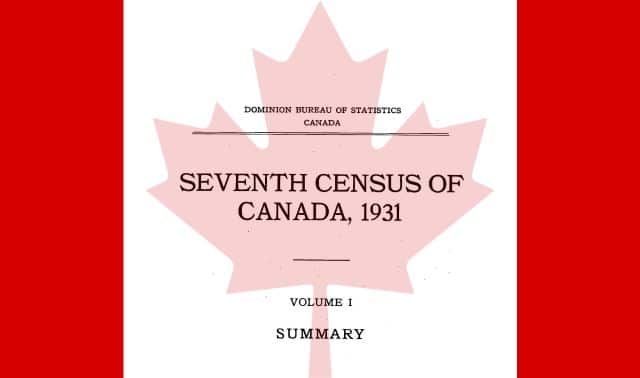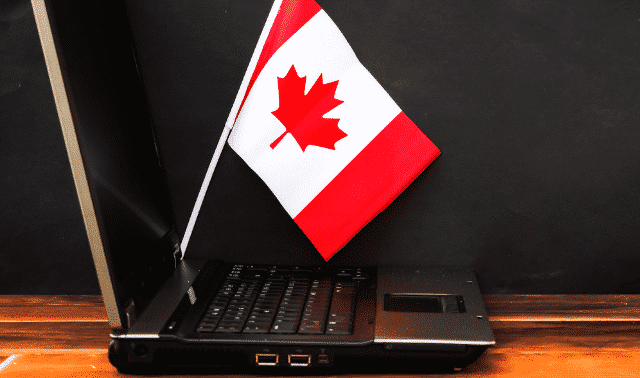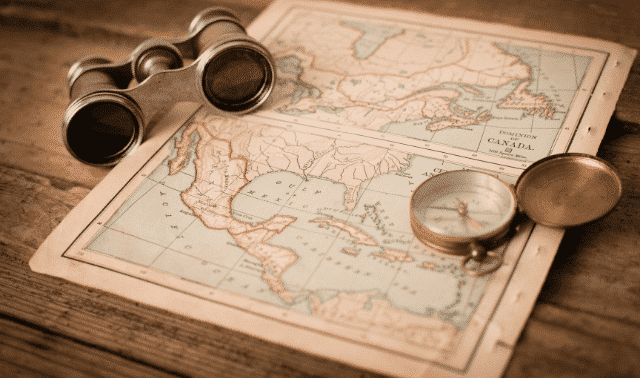Sign up for the Family Tree Newsletter! Plus, you’ll receive our 10 Essential Genealogy Research Forms PDF as a special thank you.
Get Your Free Genealogy Forms
"*" indicates required fields
Quick, name the two countries that were born as a result of the American Revolution.
If you live in the United States and can think of only one, you’re probably with the vast majority of your countrymen. The other? Canada.
While Canada as a confederation wasn’t formed until 1867, its genesis as a nation dates directly back to the Revolution. If it hadn’t been for the more than 40,000 colonialists who moved north during and immediately after the war, much of the area from Ontario east might have fallen into the hands of the United States in the War of 1812. After all, about 80 percent of Canada’s population at the time of that war had been born in the United States.
Contrary to popular belief, not every North American was itching to break away from the Brits. Indeed, two colonies—Quebec and Nova Scotia, which at the time included what is now New Brunswick and part of Maine—refused to join the Revolution. Even in the rebellious American colonies, many people loved their English homeland, and every colony raised troops that fought on the British side. Other people viewed both sides with suspicion; still others became disaffected by the fledgling government’s treatment of soldiers (remember Benedict Arnold?). And there was enough tarring and feathering and property seizing by both sides to make others decide to move away from the whole mess. Add in what some saw as anarchy after the war, opposition to a strong federalist government and lucrative land offers, and it’s easy to understand why people left. And where better to make their new homes than those neighboring colonies, Quebec and Nova Scotia?
Approximately 35,000 loyalist troops and civilians arrived in Nova Scotia in the first year after the war, doubling the area’s population. In response, the area where some 14,000 refugees had settled was separated into New Brunswick in 1784. The influx into Quebec was smaller, but it was enough to help spur the 1791 creation of Lower Canada (Quebec, primarily French-speaking) and Upper Canada (English-speaking Ontario).
That’s not to say every loyalist who moved north was English. In fact, the United Empire Loyalists’ Association of Canada’s (UEL) Toronto branch found that among its members, 28 percent of loyalist ancestors were from Germany, followed by Scotland (23 percent) and England (18 percent).
As you research, remember that entire groups of neighbors or families immigrated to Canada together. Watch for surnames that pop up in your family tree a generation or two later. Also keep in mind that your loyalist ancestors may have pension or military records in the United States, as well—some people changed allegiances in the war’s aftermath, or were forced to serve against their will.
The UEL is a great place to begin your search. Its Web site www.uelac.org includes the group’s definition of who was and was not a loyalist, membership information and an excellent bibliography. Another must-surf is the On-Line Institute for Advanced Loyalist Studies www.royalprovincial.com, which can help you find land, church and other records. Once you have a clear picture of where your loyalist ancestors lived, check out the Global Genealogy & History Shoppe www.globalgenealogy.com. While Rick and Sandra Roberts sell books, magazines and other resources from around the world, their Canadian collection is extensive (no surprise, since they’re based in Ontario), and their free electronic newsletter is very useful. The National Archives of Canada’s Web site www.archives.ca doesn’t have a lot of readily accessible records, but you can use its ArchiviaNet search engine to determine whether a trip to the archives in Ottawa would be worthwhile.



